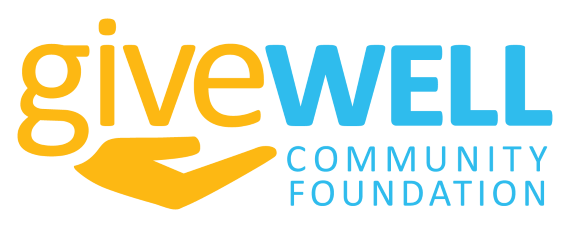Tax return reviews, types of funds, and the latest donor-advised fund news
Tax return reviews help clients level up charitable giving plans
- Cash is not king when it comes to charitable giving. Cash is typically not the most tax-effective form of charitable giving. Instead, encourage clients to consider giving highly-appreciated assets, including publicly-traded stock, to their fund at GiveWell Community Foundation to support their favorite nonprofit organizations and causes dear to their heart.
- Think even beyond stock. Encourage clients to explore not only highly-appreciated stock as a potential gift to charity, but also the various forms of “noncash” assets that can make great charitable gifts. After all, American households’ most valuable assets often are retirement accounts and personal residences, not cash. One example, for clients who are age 70½ and older, could be direct transfers from an IRA (Qualified Charitable Distribution) to a field-of-interest or designated fund at the Community Foundation.
- Make it easy on yourself and your client. Reach out to our professional staff at GiveWell Community Foundation for assistance. We are happy to help you and your client evaluate the best assets to give to a donor-advised or other type of fund at the Community Foundation to achieve the client’s charitable goals.
- Close the loop on IRS reporting. Remember that the reporting requirements are different for noncash gifts to charitable organizations versus cash gifts. Make sure you are familiar with IRS Form 8283, which must be filed with any tax return claiming a deduction for noncash assets valued at $500 or more. The IRS expects strict adherence to the terms of the form, especially the requirement for a qualified appraisal. On our end, the Community Foundation will handle the confirmation of receipt and a commitment to document and notify the IRS if disposition occurs within three years.
Opening up the full range of charitable giving options for your client can help you structure a holistic estate and financial plan that meets the client’s objectives for family wealth, philanthropy, and tax effectiveness. Reach out anytime to discuss techniques and strategies.

Fund types tailored to your client’s charitable goals
Just as each of your clients has a unique estate plan and financial plan to meet the client’s particular situation and goals, each of your philanthropic clients needs a unique charitable giving plan. For example, for some clients, giving shares of highly-appreciated stock consistently every year to their fund at GiveWell Community Foundation makes the most sense for their charitable goals and their mix of assets. For other clients, leaving a bequest to the Community Foundation to support specific designated charitable organizations or areas of interest is the best fit for the client’s financial situation, community priorities, and charitable goals.
The Community Foundation offers charitable giving options to meet a wide range of clients’ needs. Often, a single client can benefit from setting up multiple funds of different types to fully satisfy the client’s objectives.
Here’s an introduction to a few of our most-popular fund types:
Donor-Advised Fund
A donor-advised fund enables your client to establish a specific fund for charitable giving. Your client makes tax-deductible contributions of cash (stock or other highly-appreciated assets) to the fund, and then recommends grants to nonprofit organizations when they choose to do so.
Designated Fund
A designated fund allows a client to direct giving to a specific nonprofit organization or purpose. Over time, the Community Foundation’s staff manages the distributions from the fund according to the terms established and outlined by your client.
Field-of-Interest Fund
Clients who want to target their giving to specific areas of community need (such as education, behavioral health, animal welfare, or the arts) can set up a field-of-interest fund to establish parameters for grant making under the ongoing guidance and expertise of the Community Foundation’s board and volunteer leadership.
Agency Fund
An agency fund is similar to a designated fund, except in the case of an agency fund, the source of the initial contribution is the beneficiary nonprofit organization itself, not a donor or donors as is the case with a designated fund. If your client serves on boards of directors of charities, they’d likely be interested in learning more about agency funds. Indeed, if you represent nonprofit organizations and their board members in your practice, it’s helpful to keep in mind that organizations frequently establish agency funds at the Community Foundation to set aside endowment reserves or rainy-day funds. The professional staff at the Community Foundation is adept at navigating the specific accounting standards that are unique to this type of arrangement.
Here’s a pro tip: If you represent clients who are age 70½ and older, consider recommending a Qualified Charitable Distribution from a client’s IRA to a fund at the Community Foundation. All of the fund types noted above are eligible recipients, with the exception of only the donor-advised fund.
In addition, all of the fund types above can be established and funded now, or can be established as a legacy fund and ultimately funded through your client’s estate plan.
We look forward to working together to discover the type of fund (or funds) at the Community Foundation that could be a good fit for each client’s unique charitable interest and giving goals.

Donor-advised funds: Recommended reading
- The Donor Advised Fund Research Collaborative recently released a study that provided insight into various aspects of donor-advised funds. Donor-advised funds are frequently deployed as a tool to help philanthropists who have a wide range of financial capacity, from a little to a lot, organize their charitable giving; consistent with that function, the study found that nearly half of all donor-advised funds carry balances less than $50,000.
- The proposed IRS regulations related to donor-advised funds are attracting significant interest in legal circles. To dig into the legal issues, you might check out this article in Financial Advisor because it includes commentary from professionals in the field, as well as this article if you are a Bloomberg You can also check out the Council on Foundations’ comments for additional insight.
- For a big-picture look at the state of donor-advised funds, including the relevance of recent research and the status and implications of the proposed regulations, check out this article in Wealth Management and this article in Think Advisor.
While these materials are useful to gain an understanding of the current situation, at this point, we simply cannot predict what will happen with the proposed regulations – whether and how they will be revised or when they might become effective, if ever. As always, our professional staff is staying on top of the issues. We’ll keep you posted!

Ready to get started?
You know your clients. We know philanthropy. Together we can ensure your clients make the best decisions for making a difference in the community.

Lori Martini
Vice President/CPO
863-683-3131
lmartini@givecf.org
